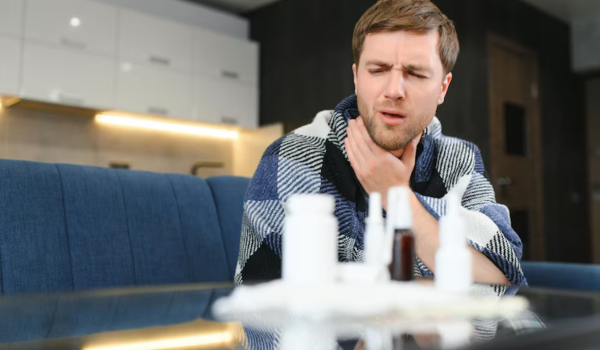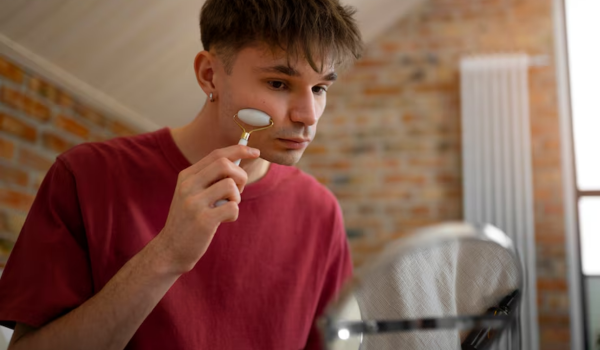How to Get Rid of Hiccups: 15 Proven Remedies for Quick Relief
How to Get Rid of Hiccups: Proven Methods and Tips for Quick Relief

Hiccups those involuntary, repetitive contractions of the diaphragm are something most of us have experienced at some point.
They can happen at the most inconvenient times, whether you’re in the middle of a meeting, enjoying a meal, or trying to sleep.
Although hiccups are usually harmless, they can be quite annoying. So, if you’re wondering how to get rid of hiccups fast, you’ve come to the right place.
In this blog post, we will explore the causes of hiccups, why they occur, and most importantly, provide proven methods and natural remedies to help you stop hiccups quickly.
Whether you’re dealing with an occasional hiccup or a more persistent case, we’ve got you covered with a variety of techniques to bring you relief.
What Are Hiccups?
Before we dive into the methods for stopping hiccups, let’s first understand what they are.
Hiccups, medically known as singultus, are involuntary contractions of the diaphragm, the muscle located just beneath your lungs that plays a key role in breathing.
These contractions are followed by a sudden closure of the vocal cords, which creates the characteristic “hic” sound.
The exact cause of hiccups is often difficult to pinpoint, but they are generally triggered by some form of irritation or stimulation of the diaphragm or the vagus nerve (which controls the diaphragm).
Hiccups can last anywhere from a few seconds to several minutes, and while most cases are short-lived, some people experience persistent or chronic hiccups lasting more than 48 hours.
Common Causes of Hiccups
Understanding what causes hiccups can sometimes help you prevent or reduce the frequency of these sudden outbursts. Some of the most common causes include:
- Overeating or Eating Too Quickly: When you eat too fast or consume large amounts of food, the stomach expands rapidly, which can irritate the diaphragm and trigger hiccups.
- Carbonated Beverages: Drinks like soda, sparkling water, or beer release carbon dioxide gas, which can lead to bloating and put pressure on the diaphragm, resulting in hiccups.
- Spicy Foods: Spicy foods can irritate the esophagus and trigger the reflex that causes hiccups.
- Drinking Alcohol: Alcohol, especially when consumed quickly, can cause irritation to the stomach lining and diaphragm.
- Sudden Temperature Changes: A sudden gulp of cold water after drinking something hot (or vice versa) may cause a spasm in the diaphragm.
- Stress or Excitement: Emotional triggers such as stress, excitement, or anxiety can lead to hiccups as the body’s autonomic nervous system is activated.
- Swallowing Air: This can happen when chewing gum, sucking on hard candies, or even talking while eating, leading to excess air in the stomach.
- Medical Conditions: Rarely, persistent or chronic hiccups may be caused by underlying medical issues, such as gastroesophageal reflux disease (GERD), stroke, or a brain injury.

How to Get Rid of Hiccups: 15 Effective Methods
Now that we know what causes hiccups, let’s explore a variety of methods to help get rid of hiccups fast. These remedies range from simple, at-home techniques to medical interventions for persistent cases.
1. Hold Your Breath
One of the most well-known remedies for hiccups is holding your breath. By holding your breath, you allow carbon dioxide to accumulate in your lungs, which may help relax the diaphragm and stop the spasms.
How to do it:
- Take a deep breath in and hold it for as long as you comfortably can.
- Try to keep your breath in for 10–20 seconds, then exhale slowly.
- Repeat if necessary.
The increase in carbon dioxide levels may disrupt the hiccup reflex and allow the diaphragm to relax.
2. Drink a Glass of Water
Drinking water can help reset the diaphragm and stop the spasm that causes hiccups. The key is to sip slowly or drink it in a specific way.
How to do it:
- Drink a glass of cold water slowly.
- Alternatively, try drinking the water upside down (bend forward and sip from the opposite side of the glass). This method engages different muscles in your throat and diaphragm.
The act of swallowing helps to reset the diaphragm and stop the hiccup cycle.
3. Gargle with Ice Water
Gargling with ice water can stimulate the vagus nerve, which may interrupt the hiccup reflex. The cold water also helps numb the muscles of the throat and diaphragm.
How to do it:
- Fill a glass with ice water.
- Gargle the ice water for about 30 seconds, then swallow.
This is one of the quickest and most effective remedies for getting rid of hiccups.
4. Swallow a Teaspoon of Sugar
Sugar can help to reset the diaphragm by stimulating the vagus nerve and distracting the body from the hiccup reflex. The graininess of sugar can also provide a gentle irritation that interrupts the spasm.
How to do it:
- Swallow a teaspoon of granulated sugar without chewing.
- Allow it to dissolve in your mouth as you swallow.
This remedy is simple, effective, and often works quickly.
5. Breathe into a Paper Bag
Breathing into a paper bag increases the carbon dioxide levels in your blood, which can help stop the hiccups by relaxing the diaphragm.
How to do it:
- Take a paper bag and place it over your mouth and nose.
- Breathe in and out slowly for about 10–15 breaths.
Be careful not to do this for too long, just long enough to help relax your diaphragm.
6. Peanut Butter Trick
The sticky texture of peanut butter can interrupt the hiccup reflex by stimulating your throat muscles. The thickness and texture require more effort to swallow, which may help reset your diaphragm.
How to do it:
- Take a spoonful of peanut butter and let it sit in your mouth for a few seconds.
- Slowly swallow the peanut butter without chewing.
This is a fun and surprisingly effective method!
7. Apply Pressure to Your Diaphragm
Sometimes, gently applying pressure to your diaphragm can help stop hiccups by relaxing the muscle and preventing spasms.
How to do it:
- Gently press down on the area just below your ribcage, where your diaphragm is located.
- Apply light pressure for 30–60 seconds while breathing deeply.
This pressure can help relieve the tension in the diaphragm and stop the hiccups.
8. Try the Valsalva Maneuver
The Valsalva maneuver is a technique that involves creating pressure in your chest, which can help reset the diaphragm.
How to do it:
- Close your mouth and pinch your nose shut.
- Try to exhale forcefully without letting any air escape.
This maneuver increases pressure in your chest, which may disrupt the hiccup reflex.
9. Use a Cold Compress
Applying a cold compress to the back of your neck or the top of your throat can help relax the muscles and stop the hiccups.
How to do it:
- Take a cold pack or ice cubes wrapped in a towel.
- Apply it to the back of your neck or the back of your head for 5–10 minutes.
The cold sensation can help calm the nerves and relax the diaphragm.
10. Stimulate the Back of Your Throat
Stimulating the back of your throat can sometimes help by distracting your nervous system and stopping the hiccup reflex.
How to do it:
- Gently tickle the back of your throat with a cotton swab or your finger.
- Alternatively, try drinking water while tilting your head back.
This method works by engaging the vagus nerve, which can help calm the diaphragm.
11. Sip Vinegar
Vinegar, with its strong and sour taste, can stimulate the throat muscles and stop the hiccup cycle.
How to do it:
- Take a teaspoon of vinegar and swallow it quickly.
- You can also add vinegar to a glass of water and sip it slowly.
The sour taste may help reset the diaphragm and stop the spasms.
12. Distract Yourself
Sometimes, simply distracting yourself can break the cycle of hiccups. When you focus on something else, the hiccups may stop on their own.
How to do it:
- Try counting backward from 100.
- Engage in a conversation or focus on solving a puzzle.
Distraction can often stop the hiccup reflex without you needing to do anything else.
13. Massage Your Ears
There are pressure points in your ears that are connected to the vagus nerve. Massaging them may help interrupt the hiccup reflex.
How to do it:
- Gently massage the area around your ears and earlobes for 30 seconds.
- You can also apply gentle pressure to your earlobes.
This pressure can stimulate the vagus nerve and help stop the hiccups.
13. Try the “Sips of Water” Method
Another technique that involves drinking water is the “sips of water” method. This method works by controlling your breathing and swallowing rhythm, which may help reset the diaphragm.
How to do it:
- Sip cold water in quick, controlled sips for about 30 seconds.
- Focus on swallowing and breathing rhythmically.
This method helps relax the diaphragm and stop the spasms.
15. Consult a Doctor for Persistent Hiccups
In rare cases, if you experience persistent or chronic hiccups lasting more than 48 hours, it’s important to consult a healthcare provider.
Chronic hiccups may be a sign of an underlying condition, such as gastroesophageal reflux disease (GERD), stroke, or central nervous system issues.
Your doctor may recommend medications or therapies to treat chronic hiccups.

Conclusion
Hiccups, while often temporary, can be a nuisance when they strike unexpectedly. Fortunately, there are a variety of effective methods to get rid of hiccups fast.
Whether you try holding your breath, drinking water, eating a spoonful of sugar, or using any of the other tricks listed above, most people can find relief from hiccups within a few minutes.
If you experience chronic hiccups, it’s always best to seek medical advice, as they may be a sign of an underlying health condition. But for the occasional hiccup, the remedies outlined above should do the trick!
So next time you’re wondering how to get rid of hiccups, try one of these simple and natural methods and get back to your day without the interruption!
.